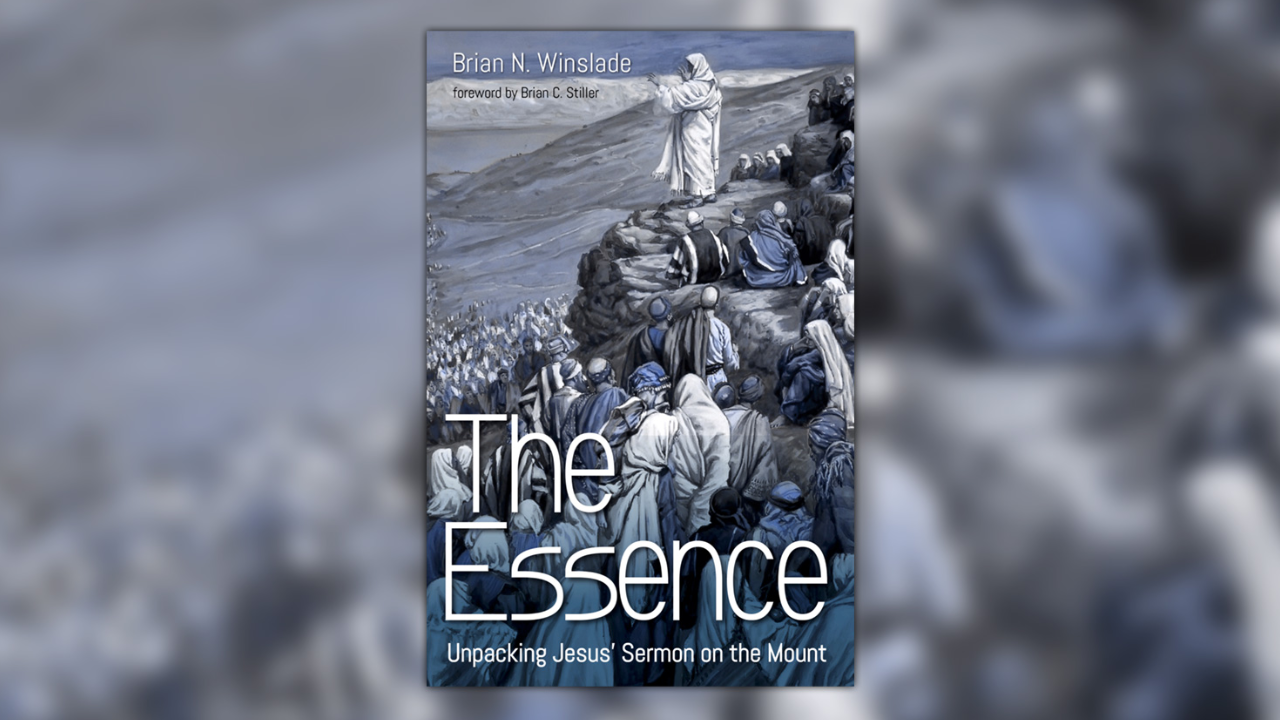
Brian N Winslade; Resource Publications, 2020, (p248)
ISBN 9781532695346
Brian Winslade is senior pastor of Hamilton Central Baptist Church and for several years was national leader of our Baptist movement.
His new book The Essence: Unpacking Jesus’ Sermon on the Mount, follows on from a similar one (Boundaries) a few years ago on the Ten Commandments.
In The Essence, Winslade sets out to make sense of the Sermon on the Mount, as recorded in chapters 5 to 7 of Matthew.
The title of the book sums up the author’s view of just how central these passages are to anyone who would seek to follow Christ. As Winslade puts it “in short, were a person to grasp nothing else of the teaching of Jesus apart from that contained in the Sermon on the Mount, he or she probably acquires the gist of all he was on about”.
Practical application
The book, which began as a series of sermons, isn’t aimed at a scholarly audience. Instead it is primarily for “the ordinary average follower of Jesus who seeks to understand and following the teaching of Jesus”.
Many authors down the years have tried something similar. In some ways, perhaps, this book aims to be for our day what the relevant volume of William Barclay’s Daily Study Bible might have been for many a few decades ago. There are many footnotes referencing points Barclay had made, often elucidating the social or cultural context for some of Jesus’ teaching.
But more so than Barclay, Winslade moves on to application—and even a few ‘dad jokes’ as well. Each chapter concludes with a series of questions on which either an individual reader might usefully reflect, or which a home group might use as the basis for a series of studies.
The missing Beatitudes
A potential reader (or reviewer) just glancing at the title or reading the back cover might be surprised when they eventually realise that The Essence omits completely what is surely the single best-known passage of the Sermon on the Mount, the Beatitudes.
The author puts that down mainly to reasons of space and length, even suggesting that one day there may be a ‘prequel’. But, for this reader anyway, the book is at least a little diminished by the omission. The Beatitudes seem to provide an overarching context for much of what follows, an intensity against which we are meant to read the rest of the sermon.
Cultural context
It is a useful and welcome book, and it is hard not to conclude that Winslade has achieved his goal of providing an accessible exploration of the Sermon, providing a range of contextual material for the person in the pews and prompting them, individually or as a group, as to how these challenging teachings apply in our own lives, our own day.
But it is worth noting that the book is very much focused on the individual Christian, and not that much on the Christian community.
John Stott’s book on the Sermon on the Mount used the subtitle of “Christian counter-culture” to capture something of what Christ called us to. But it is hard to sustain any particular culture as an individual. This is even more so the starker the contrast becomes between the values and practices of the prevailing culture around us and the counter-culture the church is called to live, proclaim and follow. How we do this wouldn’t have been Winslade’s intended focus, but a greater congregational emphasis might have been helpful.
In places The Essence also has the feel of something that might as readily have been written 15 or 20 years ago, even as the cultural context has moved on even in that time. For example, in several places Winslade (no doubt rightly) emphasises the power and attractiveness of winsome silence and radical personal integrity. But in an era when the pressure is growing in many secular contexts (including workplaces) to be seen overtly to conform, and to proclaim one’s subscription, to values or practices that many will see as running counter to the gospel of Christ, how far does that take one?
It was mid-20th century German theologian Dietrich Bonhoeffer who, in his own book on the Sermon on the Mount, wrote that “when Christ calls a man, he bids him come and die”. Strong Christian communities shape and equip us, preparing us for that sort of radical costly discipleship.
Readers are likely to come away better informed and challenged for reading, discussing, reflecting on and praying over Winslade’s treatment of the Sermon on the Mount. And perhaps we might hope for that prequel on the Beatitudes themselves.
Reviewer: Michael Reddell


